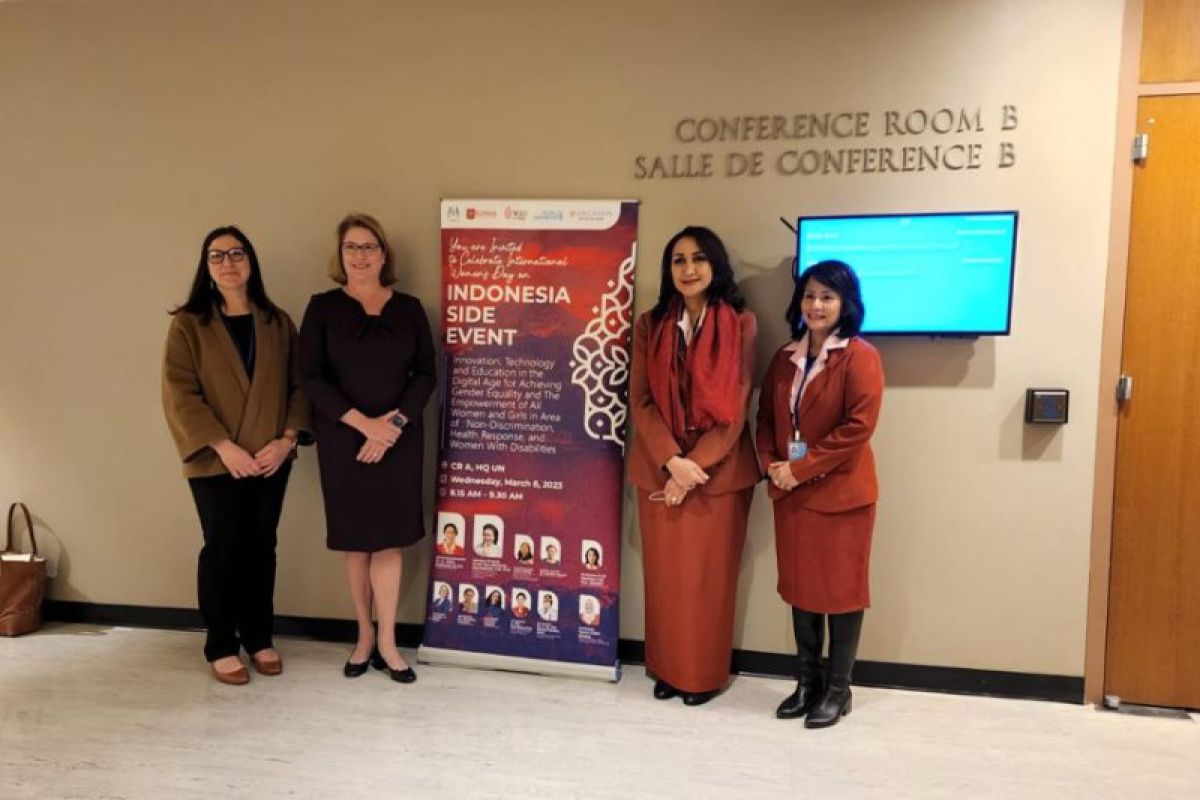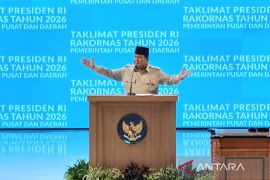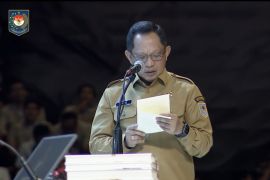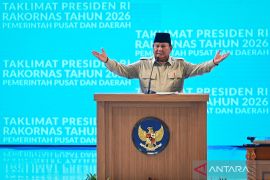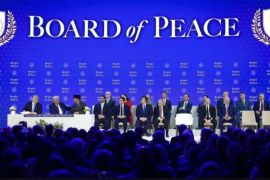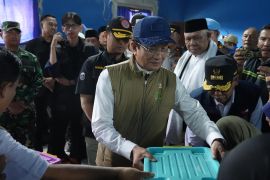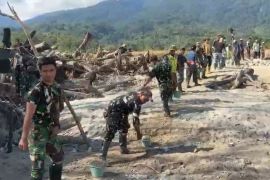Indonesia, represented by the Indonesian Women's Congress (Kowani) in collaboration with the Ministry of Women's Empowerment and Child Protection, held the side event "67th Session of the Commission on the Status of Women (CSW67)."
Women's Empowerment and Child Protection Minister, Bintang Puspayoga, and Indonesia's Permanent Ambassador to the UN Arrmanatha Nasir attended the event.
Attendees at the CSW67 comprised 81 representatives of world countries, exceeding the expected attendance of 53 people.
"Some experiences and good practices in overcoming gender equality issues were presented in the ministerial session," Minister Puspayoga stated.
Indonesia also highlighted efforts to achieve gender equality through digital technology and education promotion as well as good practices, such as Women-friendly and Child-caring Villages (DRPPA).
The DRPPA program integrates gender perspectives and children's rights into the governance and development of villages. It also encourages the empowerment of village communities and is carried out in a planned, comprehensive, and sustainable manner.
The DRPPA program is implemented, so that villages can provide a sense of security and comfort for their communities, especially for women and children.
It also pushes villages to ensure the right to protection from all forms of violence and discrimination and provide public facilities and infrastructure that accommodate women and children.
The CSW67 session, being held on March 6-17, 2023, carried the theme of "Innovation and Technological Change, and Education in the Digital Age" aimed at achieving gender equality and empowering women and children.
Chairperson of Kowani, Giwo Rubianto Wiyogo, explained that Kowani, which accommodates 102 women's organizations with 90 million women members across Indonesia, is a UN permanent member and has been given special consultative status at the UN Economic and Social Council (ECOSOC) since 1998.
Kowani is obligated to participate in the UN session every year to fight for the advancement of women.
"Not only (to fight for women's rights) in Indonesia but (also) all over the world, Kowani is leading a group of 32 leaders of women's organizations throughout Indonesia at CSW67 at the UN headquarters," Wiyogo stated.
The annual session was attended by Kowani's Coordinating Head for Foreign Relations, Hadriani Uli Tiur Ida Silalahi, and Head of Foreign Relations, Tantri Dyah Kiranadewi.
At the session, Wiyogo spoke at length on the resolution and initiatives for the participating social organizations and women's organizations to continue their respective programs for women's empowerment in Indonesia.
The resolution encompassed improving Indonesian women's digital literacy skills, not only for adult women but also students, through the school curriculum, among others.
"As well as how to use online and digital business strategies which now become a business platform and the economy, in general, for economic empowerment," she explained.
The annual session is a forum to learn and share insights, good practices, and ideas that can support women's roles and participation.
Increasing women's participation starts from a small step that can turn into a big leap for women's empowerment around the world.
One of Kowani's efforts in empowering women economically is the implementation of the Kowani Fair since 1999.
Through the fair, Kowani provides facilitation and mediation as well as invites women micro, small, and medium enterprises (MSMEs) actors to keep upgrading the quality and variety of their products to make a real contribution to the nation's economy.
During the COVID-19 pandemic, Kowani held the Kowani Fair online via Zoom by providing training on how to sell products at the marketplace, such as tips for pictures of products and the descriptions.
The CSW67 session was opened by UN Secretary-General Antonio Gutteres, who said that the session's results will be a sort of agreed resolution to be later negotiated by all UN member states.
Gender equality difficult to achieve
Earlier, the UN Secretary-General stated that women's rights had been abused, threatened, and violated around the world. Hence, he said, in that way, gender equality cannot be achieved even in 300 years.
Gutteres said that the progress in women's rights made over decades, vanished abruptly as patriarchal culture resurfaced.
For instance, in Afghanistan, the rights and roles of women and girls have been erased from public life, while women's sexual and reproductive rights are reversed in some countries.
He also said teenage women are at risk of being kidnapped and assaulted in several places. The COVID-19 pandemic has also caused another setback, in the form of an increase in maternal mortality.
"Also forcing girls to marry and keeping them out of school. Meanwhile, mothers and nannies are struggling to find jobs," Gutteres pointed out.
The Commission on the Status of Women also highlighted the gender gap in technology and innovation. It said the topic is relevant since women and young ladies were considered to be lagging behind when technology was moving forward.
Meanwhile, at least three billion people, mostly women and girls in developing countries, still do not have access to the internet. In fact, only 19 percent of the woman population in least developed countries can access the internet.
"Globally, girls and women make up one-third of the students in science, technology, engineering, and mathematics," Gutteres stated.
There is still a long way to go to achieve gender equality, but every step taken today has an impact on every woman tomorrow. There is a need for change by utilizing digital technology to achieve gender equality.
Related news: ASEAN to bolster cooperation in achieving gender equality with CSW
Related news: APEC to redouble efforts to tackle gender inequality in economy
Related news: Women play crucial role in pursuing gender equality: Minister
Translator: Indriani, Kenzu
Editor: Sri Haryati
Copyright © ANTARA 2023
